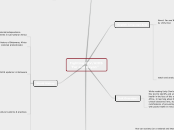realizată de Molly Porzig 11 ani în urmă
352
Far and Beyon'

realizată de Molly Porzig 11 ani în urmă
352

Mai multe ca acesta
diviners
sexual assult & domestic violence
videos of HIV positive youth in Botswana & youth programs
https://www.youtube.com/watch?v=akSEfrtbXVw
Resource: Saturday is for Funerals by Unity Dow
AIDS orphans & epidemic impacts on youth
Westernization & legacies of colonialism
Part II: "African Resistance Grows" ("African Responses to Colonialism" and "The Tide Begins to Turn"
Youth Voices: http://youthvoices.net/
students write about their experience getting tested
Enduring Understandings
A variety of strategies are being used to address global health crises (such as HIV/AIDS) with varying degrees of success. Students will be able to develop complex analysis of one public health strategy they argue is the most pivotal in curtailing the spread of HIV/AIDS: I. Culture as Healing II. Women’s Health III. Youth Focus IV. Men’s Health V. Medical Research VI. Education
Stanford Medical Youth Science Program: Public Health Advocacy Curriculum
assets, barriers, (more TBD), transmission
Motswana, Setswana, Tswana, Botswana, Batswana, diviner
reading quizzes with critical questions & reading comprehension
Reading packet
students identify assets & barriers to health they notice in each chapter
postcolonial "glasses" to talk to text with post- colonial criticism
guiding questions: -What problems of identity are the characters struggling with? -How does the character(s) feel about their identity or position in society (their culture, language, religion, race, gender, class or family?) -Are two worlds or cultures in conflict? Why? What does the conflict seem to be about? -What forms of oppression or inequality are represented in this story? Who holds positions of power? What do you think he/she/they look like and where are they from? Who do you think is oppressed and what do you think he/she/they look like or where are they from? -Who resists oppression or inequality? What do they do to resist? What about their identity makes their resistance especially important? -What is the author’s attitude toward his/her characters? How do you think the author feels about the events or issues in the story?